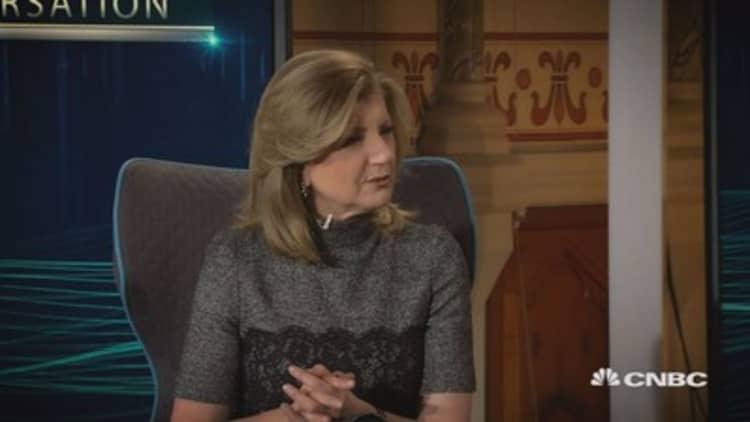If you ever dream of squeezing in a siesta at work, you're not alone. In fact, snoozing on the job is actually pretty common, according to a new survey.
Mattress company Amerisleep polled 1,001 Americans to gauge people's sleep habits while on the clock. More than half of respondents (51.8 percent) admitted to getting shut eye during business hours, but factors like industry and salary play a role in how much they doze.
So who is doing all this sleeping?
A full 70 percent of survey respondents who work in tech admit to sleeping during work hours (the most of any industry), followed by 68.2 percent of people in the construction industry, 63.5 percent of people in government and public administration, 58.9 percent of people in finance and insurance and 58 percent of people in information services and data processing.
And for the most part, the more money people made, the less they slept during work. Those making $100,000 or more a year took an average of 2.4 naps per month while at work, while people who made less than $10,000 took an average of 4 naps per month at work, the most of any income level.
And, it turns out, employees in some fields of work nap for a sizable chunk of their day.
The survey revealed that people who work in the medical or healthcare field report napping for nearly 17 percent of their workday, while people in education reported sleeping roughly 13 percent of their workday and people in tech snooze for 11 percent.
So where are these tired employees catching some shut eye?
Amerisleep's survey found that popular spots for on-the-clock naps include at a desk or in a cubicle or meeting room. Nappers in the education, medical and health care and government and public administration industries also opted for sleeping in a vehicle.
Amerisleep's survey also looked at whether napping during work hours was considered acceptable.
It found that many people think sleeping at work is not cool: Almost 80 percent of people who had never slept at work felt it was not ok, and almost 34 of people who had slept during work hours also felt it was unacceptable.
Research has found, however, that naps provide a plethora of mental and physical benefits.
One study, published in 2015, found that nappers were able to tolerate frustration significantly longer than those who didn't nap and also reported feeling less impulsive after a 60 minute nap. And yet another study published in the Journal of Clinical Endocrinology & Metabolism found that a 30-minute nap can reverse the hormonal impact of a night of poor sleep, and that naps may even be good for the immune system.
And while Amerisleep's survey found that many people nap at work even when it's prohibited (including almost 66 percent of people who work in construction and a little over 62 percent of people who work in tech), there are many companies who have adopted policies that allow for — and even encourage — re-charging with a power nap.
It's been reported that companies including Google, Ben & Jerry's, Cisco, Zappos, Uber and Nike allow for napping.
And media mogul Arianna Huffington is a big advocate for sleep, penning several books on the topic. Huffington told Architectural Digest she turned a closet in the offices of her new company, Thrive Global, into a room that employees can use for naps or meditation.

Don't miss: Booze, pizza and sex — what Americans will (and won't) give up for better sleep
Like this story? Like CNBC Make It on Facebook!


